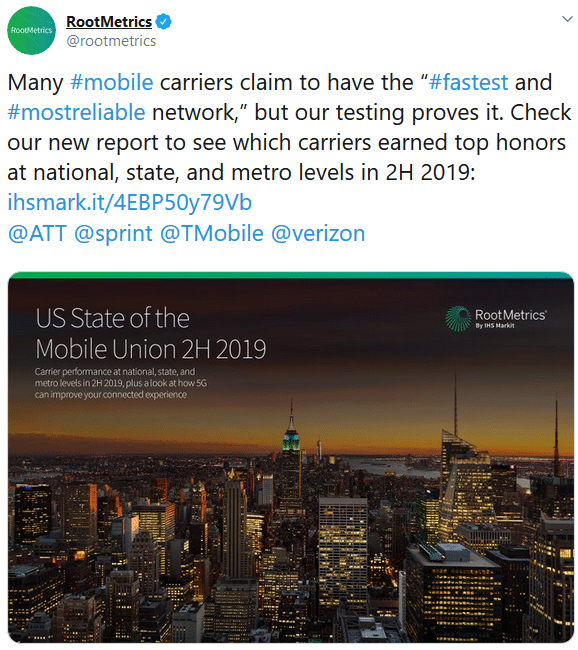Today, Ookla announced that it acquired RootMetrics. I’ve long argued that RootMetrics has the best methodology for assessing the quality of cellular networks at the national level. Further, I’ve argued that Ookla’s traditional methodology is lousy. Since Ookla primarily relies on tests initiated by users, the company’s data is subject to biases that RootMetrics’ drive tests and Opensignal’s automated tests avoid.
Effects of Consolidation
The network-evaluation industry has consolidated substantially over the last year. In September, a similar story surfaced when Comlinkdata announced that Tutela and Opensignal would join forces.
I’m curious how the consolidation will affect the messages consumers receive about the quality of networks. Here are some optimistic possibilities:
- Now that Ookla owns RootMetrics, Ookla might be more upfront about the limitations of user-initiated tests.
- With fewer independent companies publishing evaluations, we might see movement away from today’s situation where questionable financial incentives nearly guarantee that even lousy networks will win awards.
- Ookla’s app is used by a lot of people. The app may end up integrating some of RootMetrics’ data that otherwise wouldn’t be available to consumers.









